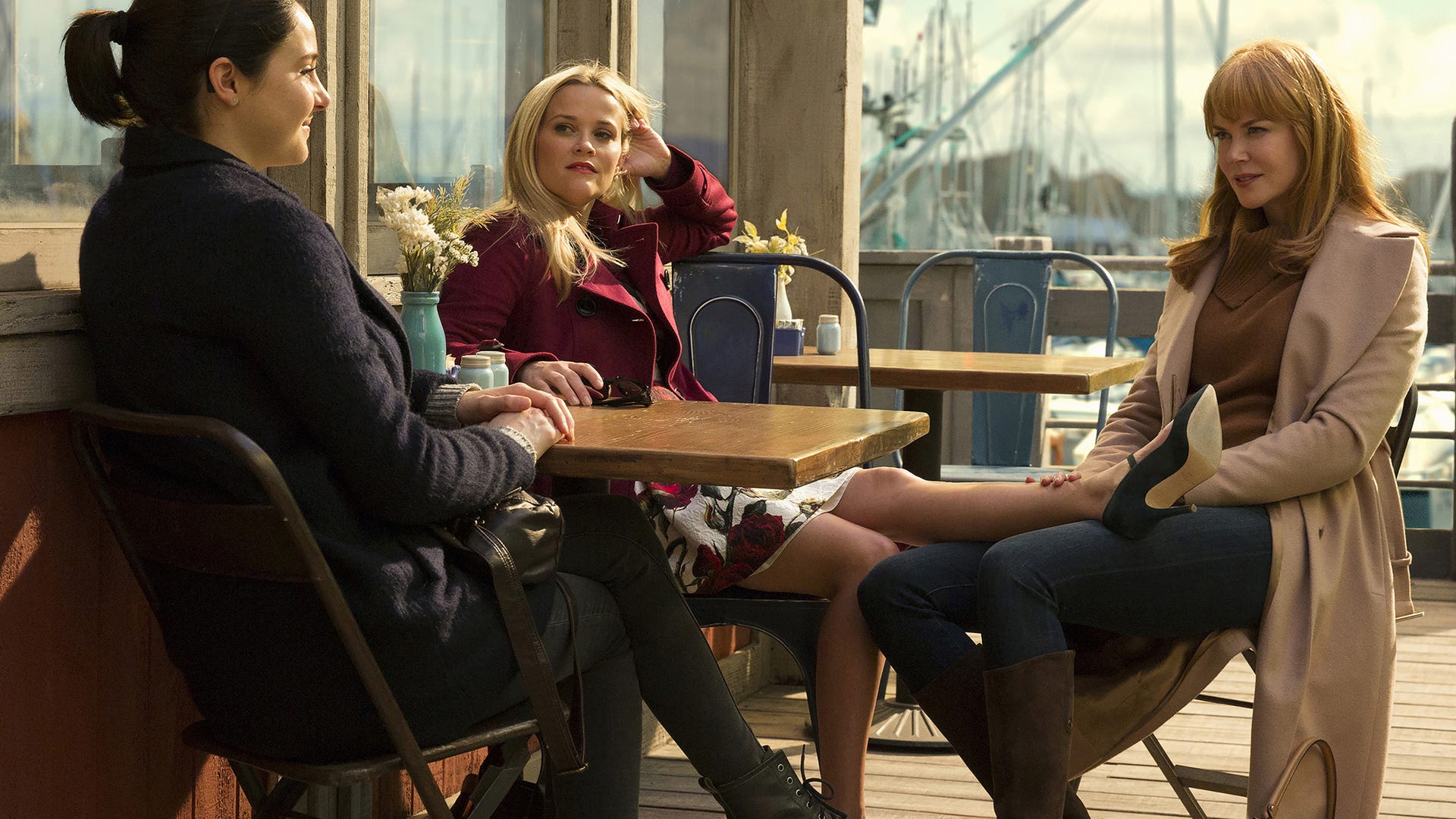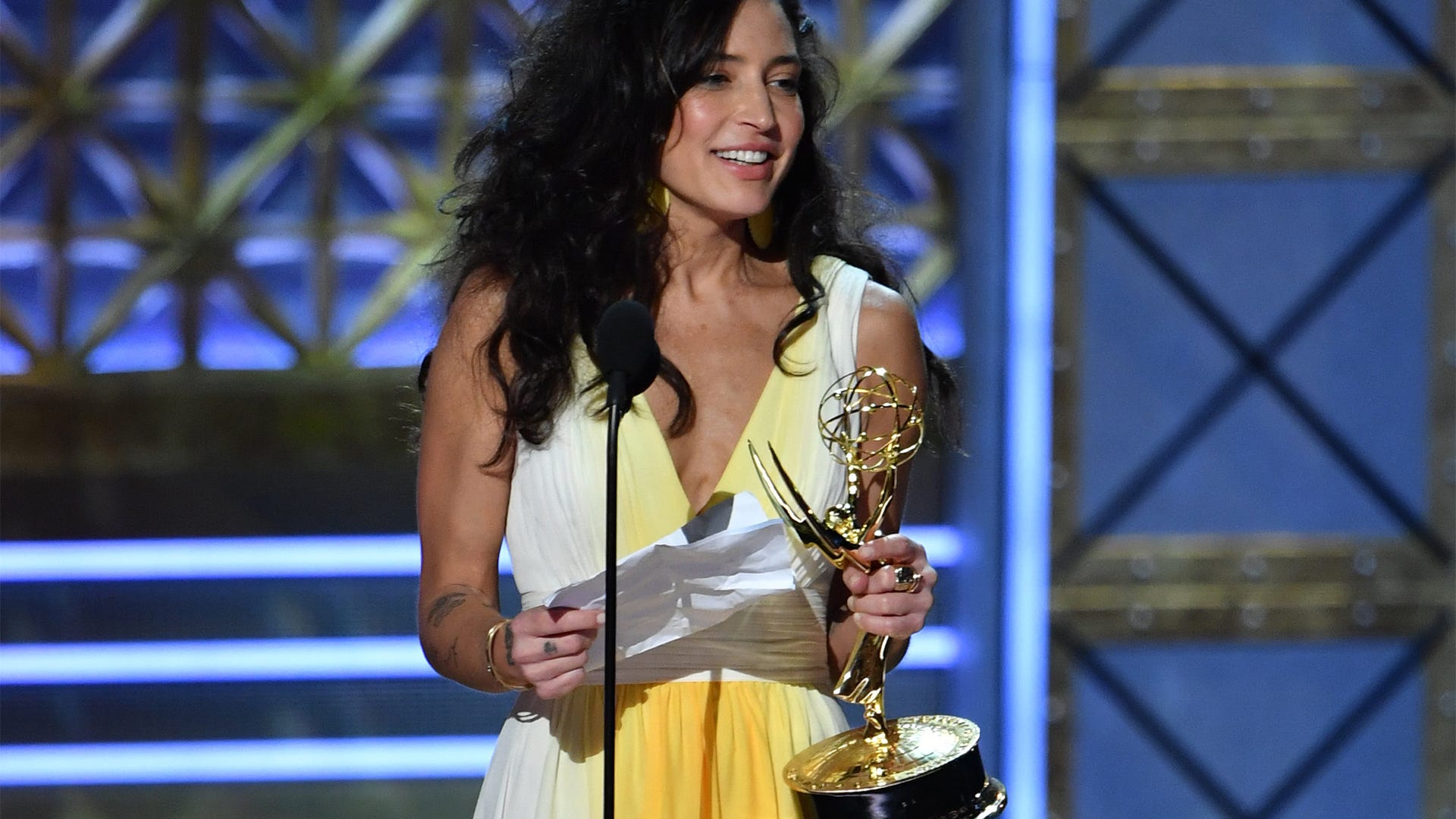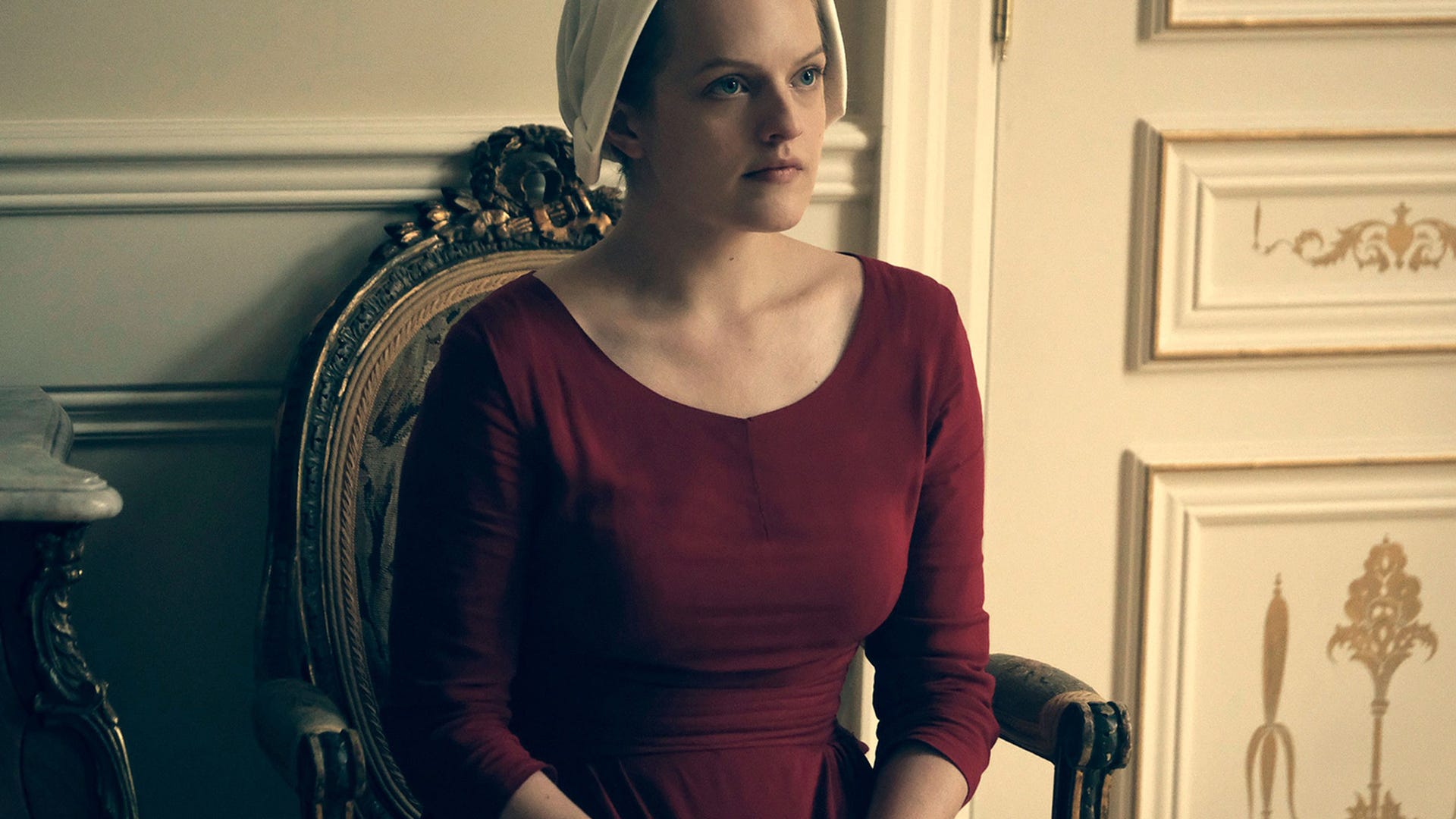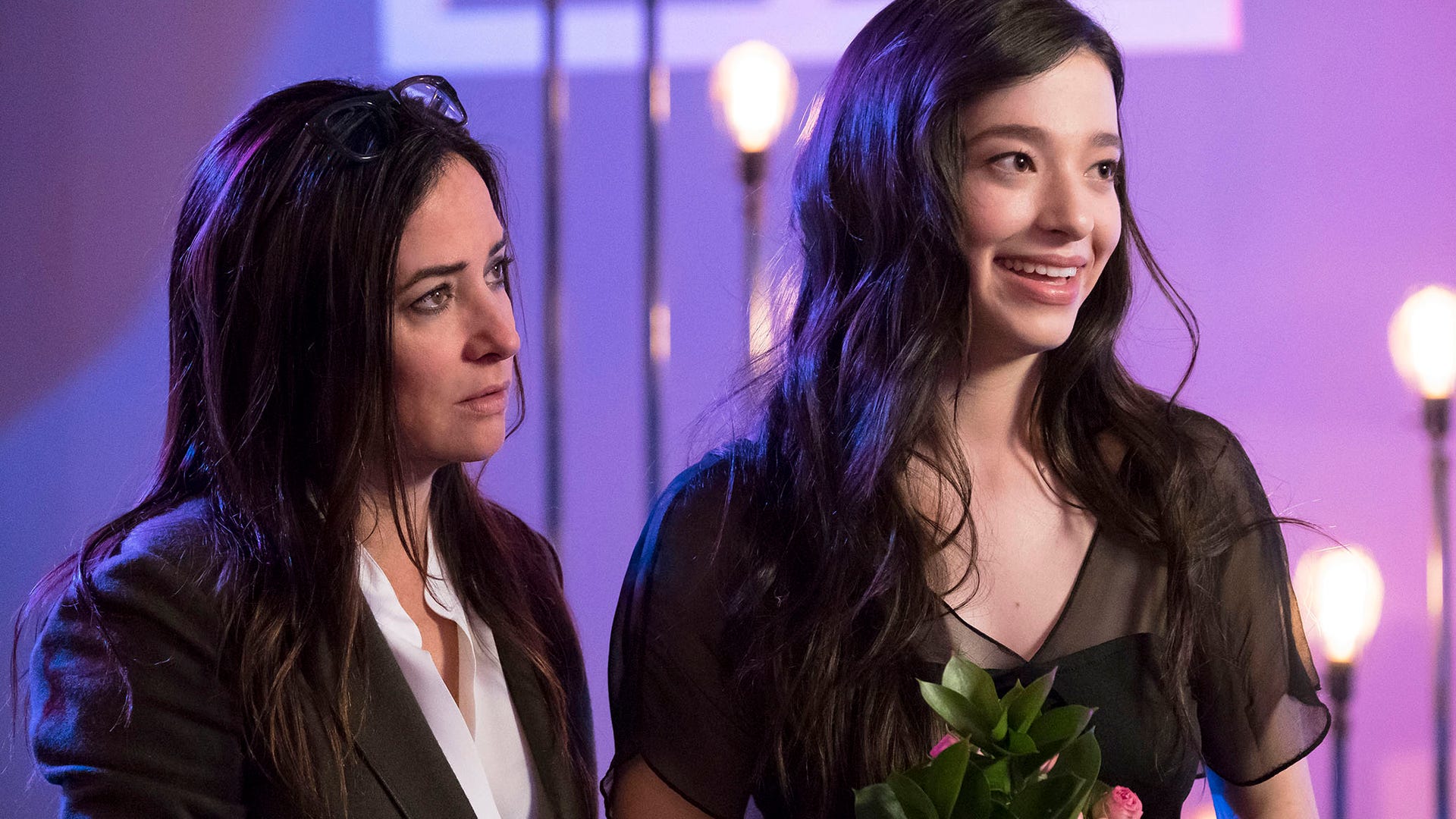Join or Sign In
Sign in to customize your TV listings
By joining TV Guide, you agree to our Terms of Use and acknowledge the data practices in our Privacy Policy.
Here's How to Make Sure the Emmys' Year of Women Isn't a Fluke
The future is female
The big winner of this year's Emmy Awards turned out to be women.
Hulu's breakout freshman drama The Handmaid's Tale, adapted from Margaret Atwood's seminal 1985 novel, led the awards, taking home five Emmys (it already won three at the Creative Arts), including Outstanding Drama Series and Lead Actress in a Drama for Elisabeth Moss. Behind the camera, Reed Morano became the first woman in 22 years to take home the Emmy for directing for a drama series. Over on the comedy side, HBO's political satire Veepcontinued its dominance, taking home the award for Outstanding Comedy Series for the third year in a row, while series star Julia Louis-Dreyfus won her sixth consecutive Emmy for her performance as President Selina Meyer.
But the big wins for women didn't stop there; HBO's Big Little Lies, a series that put multiple women front and center, ruled the limited series categories, taking home five Emmys, including Outstanding Limited Series. Meanwhile, stars Nicole Kidman and Laura Dern took home the Emmys for lead actress and supporting actress, respectively. And Black Mirror's "San Junipero," about two gay women, took home the Emmys for Outstanding TV movie and writing for a limited series or movie.
Emmys: See the Complete Winners List
That all the major Emmy categories were dominated by stories about women is an impressive feat. It's even more impressive when you consider the inclusivity problems that continue to plague the Oscars, and other awards shows. But now that this record-breaking year has happened, how do we ensure that women and stories about women continue to be told -- and continue to be taken seriously? How do we ensure that women continue to see the same kind of success in the coming years, so 2017 won't just be seen as a fluke?
Because while it's likely The Handmaid's Tale's depiction of a dystopian near-future in which women are forced into sexual servitude by the ruling patriarchy would have prevailed regardless of who was elected president last November -- the series was well written, beautifully acted, and above all just stunning to watch -- the Trump effect is also real. The oppressive atmosphere of Trump's presidency and the political climate it has created made Offred's (Moss) story increasingly relevant, while also making Veep feel less like a satire and more like a chilling documentary. There is no doubt that the current political landscape likely influenced voters.
Check Out Our Complete Emmy Awards Coverage Here
So again we ask: how do we ensure that women continue to find success in the coming years? How do we ensure that this year's success is a real step forward, and isn't just a gut reaction to the current political climate?
Step 1: Increase the number of stories told about women

Shailene Woodley, Reese Witherspoon and Nicole Kidman, Big Little Lies
Hilary Bronwyn Gayle/courtesy of HBO
In accepting the Emmy for Big Little Lies, star and producer Reese Witherspoon called for more writers to bring women to the front and "make them the hero of their own stories." It's a request that sounds simple enough, especially given the record night women had, but the truth is, we've still got a long way to go.
According to the annual Boxed In study conducted by San Diego State University's Center for the Study of Women in Television and Film, women still trail men when it comes to pivotal roles on television. Last season women accounted for 42 percent of major characters -- described as appearing in more than one scene and being instrumental to the narrative -- on broadcast, cable and streaming programs. However, the percentage of female characters featured on broadcast programs remained the same (43 percent) in 2016-17 as it was in 2007-08, indicating a lack of movement. In comparison, streaming programs featured the most major female characters at 47 percent, while cable programs came in with just 34 percent of major roles going to women.
Nicole Kidman Spotlights Domestic Abuse in Big Little Lies Speech
Step 2: Hire more women behind the camera

Reed Morano
FREDERIC J. BROWN/AFP/Getty Images
Despite their female-driven stories, The Handmaid's Tale, Veep, Big Little Lies and Black Mirror's "San Junipero" were all headed up by men. (The Handmaid's Tale and Big Little Lies were adapted from novels written by women.) It's well past time time we put more women in more pivotal roles behind the camera.
Last season, across all platforms, women comprised just 28 percent of all key behind-the-scenes roles, including but not limited to creators, directors, writers, producers and editors. This is a 2-percent increase over 2015-2016, but according to the study, the employment of women in key positions on broadcast programs specifically has stalled over the last decade, which makes it incredibly difficult for progress to be made.
However, the percentage of women in essential roles increases when a program employs at least one female executive producer. According to the study, across all platforms, programs with at least one woman in an EP role featured more female characters and had higher percentages of women working as directors and writers than programs with exclusively male executive producers. Therefore, it stands to reason that hiring more women in these roles will lead to more women being hired across the board.
Julia Louis-Dreyfus Makes Emmys History for Veep Win
Step 3: Write more complex female characters

Elisabeth Moss, The Handmaid's Tale
George Kraychyk, George Kraychyk/Hulu
This may shock some people, but women are just as complex as men -- and yet they're rarely given roles that reflect this. On television in 2016-2017, women continued to be plagued by stereotypes; the Boxed In study revealed that women were still more likely to be identified by their marital status, meaning they were played mostly in relation to a male character. Women were also more likely to play characters whose stories revolved around their personal lives, which meant they were less likely than men to be seen at work or working.
Women can be mothers and daughters and sisters and girlfriends and wives and friends and co-workers and bosses and still be successful in their personal and professional lives. The more we depict these complexities on screen, the better off we all are.
Looking forward to 2018 and beyond

Pamela Adlon and Mikey Madison, Better Things
Jessica Brooks/FX
While it's nice to see stories about women triumph at the Emmys -- and while it's incredible to see women be rewarded for their hard work with beautiful golden statuettes -- the truth is, this is about more than taking home shiny awards. This is about women wanting to see themselves represented on television and celebrating when they do. The Handmaid's Tale, Veep and Big Little Lies are just a few of the shows that star women and put (mostly) competent women at the forefront.
Created by Pamela Adlon, the FX series Better Things just debuted its second season. Written by, directed by and starring Aldon as a single mother of three young daughters, the series is a storytelling masterpiece that only gets better and more thoughtful as it goes. And with Adlon breaking through in the acting category this year, we can only hope that the series will make it into the comedy race next year.
Here Are the 6 Best Moments From the 2017 Emmys
Elsewhere, the Golden Globe-winning CW comedies Jane the Virgin and Crazy Ex-Girlfriend, both created by and starring women, continue to shine a light on women and women's issues with heart and humor. Whether they're telling stories about balancing motherhood and career ambitions or tackling mental illness while seeking out personal happiness, both series are prime examples of shows that follow complex women who refuse to play by the rules.
You can also add to that list Amazon's unapologetic Fleabag, a British import about a woman (creator and star Phoebe Waller-Bridge) who knows that she's broken but simply doesn't know how to fix this aspect of her life. Other shows worth mentioning: Playing House, Marvel's Jessica Jones, Insecure, One Mississippi, Happy Valley, Orange Is the New Black, The Bold Type, Broad City, Grace and Frankie, and Sweet/Vicious (which was sadly canceled earlier this year, but still worth checking out for the way it handled its central narrative about sexual assault survivors).
This is by no means a comprehensive list, and although it might seem like there's a lot of programming out there telling complex stories about women by women, when you consider there were more than 400 scripted series across broadcast, cable and streaming television last year, it's clear that there's still a long way to go.
So, let's get to work.
(Full disclosure: TV Guide is owned by CBS, one of The CW's parent company.)
